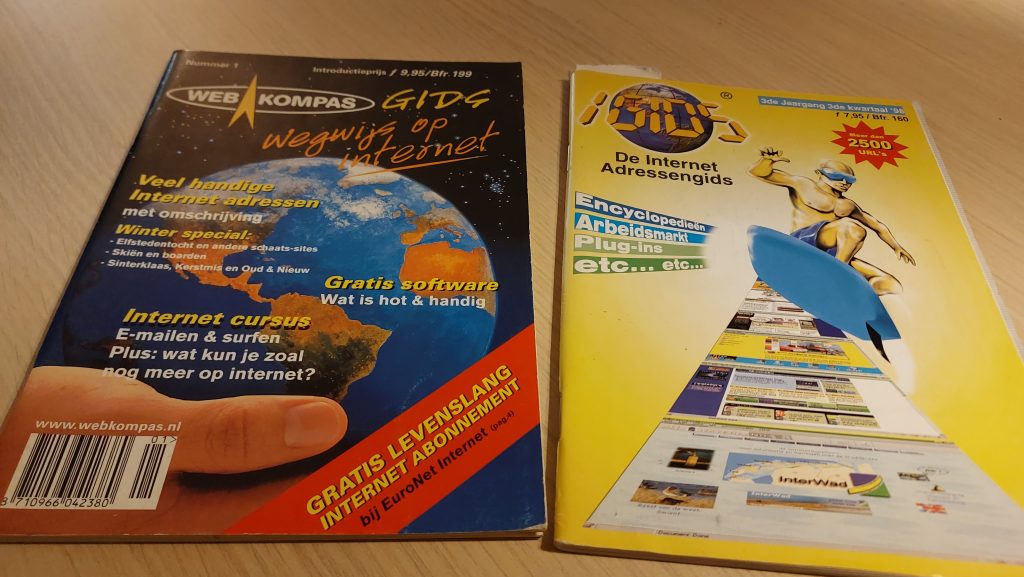Let me start with a question. When you go to a different city or a different country, do you take a travel guide with you? I myself sometimes do, but only for long travels and not because I need to but for fun. I just enjoy flipping through the pages. For short trips I don’t take the effort of looking for travel guides. It would cost me time, space in my bag and sometimes money to bring a travel guide along. Luckily, there are apps for your mobile phone that form a good replacement for the books. On your phone you can look up maps, sightseeing attractions and you can translate other languages. Those apps are very easy to use in the EU, since here you don’t have to pay any additional charges to use your mobile phone when you travel outside your home country to another EU country. Like physical travel guides, there used to be booklets with all the important internet addresses to help you find your way through the World Wide Web. Keep reeding to find out more about these internet travel guides.
Media Convergence
My grandfathers bookcase is full of all kinds of books: fantasy, travel guides and much more. And not only books. There are also CD’s and DVD’s and games. My grandfather used those books. He didn’t have a smartphone. Nowadays people can use their smartphone to read books, to listen music and to watch music. All that with just one small device which is just very smart. A smartphone is also being referred to as a mobile phone and in other languages it’s being called ein handy or un portable. These names are referring to the fact that the device is portable. There are separate apps to read articles and to watch the news, however, sometimes they mix. Then you can watch a video in your newspaper’s video. This is being called media convergence. This convergence is possible thanks to the technology of the smartphone. Innovations to media go hand in hand with technological innovations.
Internet Adress Guides

It’s hard to imagine a world without mobile phones, without the World Wide Web (WWW) and without Google. And yet, the first call ever made with a mobile phone took only place in the year was 1973. The WWW was only invented in 1989. And Google, there is some confusion about it’s birthdate, but this year it officially celebrated its 25th birthday. In my grandfather’s bookcase I have found two booklets from the year 1998 containing a whole lot of internet web addresses. One is called the I Gids, De Internet Adressengids. It contains more than 2500 URLs and back then it costed ƒ 7,95, which is currently equal to € 3,61. The other booklet is called the WebKompas Gids. This one does not only contain addresses, but also descriptions of the websites. It costed ƒ 9,95, which is equal to € 4,52. It’s not a lot of money, but still I think that nowadays nobody will pay this amount for those booklets. It has become very easy to find the information online that your looking for. Search engines have become very good in providing us with the most relevant websites. And when were afraid to lose the address, we just add it to our bookmarks.
Information Indexing
People have different ways to sort their books. Some sort them on genre, others on title and yet others on color. Some don’t have any system, but when you don’t have too many books, you’ll find the book your searching for anyway. On the Internet you won’t only find a very big number of books, but also newspapers, music, videos, games and a lot more. It would be like looking for a needle in a haystack if there were no system. Luckily for us humans there are search engines to do the searching. Those engines index all the webpages and web documents. In times where the index function was in a very early stage, I think that the internet address guides were very useful. In those booklet, web pages are sorted by function. Over time, people have gotten used to the Internet and search engines have become better in indexing. Nowadays people have forgotten or never heard of the paper internet address guides. Webpages containing a lot of URLs sorted on function still exist, for example startpagina.nl. Do you think those pages are still useful today?
So, in conclusion, new technologies, media convergence and internet access almost everywhere have made it possible to take books, games and writing materials with you in one small device. That’s great because this makes packing for holidays a lot easier. People have gotten used to this luxury, though. It’s hard to imagine a world in which you can’t just google any answer within 5 minutes. People have forgotten about internet address guides. Search engines have become normal. They index web pages and give us the most relevant ones when we search for information on a certain topic. And we just take it for granted. I think that we should be very grateful for this possibility to access information anywhere at any time.
References
Cambridge Dictionary. media convergence. https://dictionary.cambridge.org/dictionary/english/media-convergence.
CERN. A short history of the Web. https://home.cern/science/computing/birth-web/short-history-web#:~:text=Where%20the%20Web%20was%20born,and%20institutes%20around%20the%20world.
Nienke Schipper. (September 26, 2023). Google is 25 jaar: het begon als een tikfout, en moet je nu eens kijken. Trouw.nl. https://advance-lexis-com.ezproxy.leidenuniv.nl/api/document?collection=news&id=urn:contentItem:6986-BGJ1-DY0X-94TX-00000-00&context=1516831.
Sergey Brin & Lawrence Page. The Anatomy of a Large-Scale Hypertextual Web Search Engine. http://infolab.stanford.edu/~backrub/google.html.
Tom Ough. (April 3, 2023). The surprising ways cellphones have changed our lives. BBC. https://www.bbc.com/future/article/20230331-the-surprising-way-cellphones-changed-our-lives.



Hi! Thank you for such a fascinating topic! I think it is useful and necessary to remind people that the technology we are using today has not been the same as just 30 years ago. This quite fast progression of internet address guides to current search engine tools is remarkable. To be more specific, I like that you talked about media convergence, as it is essential in our society.
As for myself, I’ve never used these booklets in my life, which is opposite to my father who has been using physical maps, and booklets his whole life until approx. 2010s. But then it makes me question: even though media convergence has affected all parts of our lives, including books, television, radio, and social life, why have we not seen such a great shift in books, for example? It is simpler to read on the phone and listen to the text; and, to be honest, I prefer the phone version more. But still, I know so many people, who do not like reading e-books; moreover, statistics also show that (see “E-books VS Printed Books”, Statista Apr 21, 2022). Is it because of the physicality of books? Or is it because of something else?
Thanks again for the blog post!
Interesting topic! I think it is great that we are able to have all these different kinds of maps and travel guides within a portable device in our pockets. For one, less chopped down trees, right? And two, it opens up a whole new world of “guiding” – so many different reviews and lists, and hot spots for every city you go to. While all this is great, I do want to emphasise your last paragraph – we do, in fact, take it for granted. What happens when we drive somewhere and the cellular data has a bad connection? What happens when we arrive in a new city, in a new country and rely solely on the little devices in our hands? We should be appreciative of the possibilities that these digital tools give us, but also think about the back up plans and scenarios in which the digital might not be reachable.